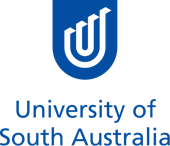
University of South Australia

The University of South Australia is Australia’s University of Enterprise on the global stage, agile and astute, known for relevance, equity and excellence.
We educate and prepare learners from all backgrounds, instilling professional skills and knowledge, and capacity and drive for lifelong learning.
Our research is inspired by contemporary challenges and opportunities which deliver economic and social benefits that also inform our teaching. We operate through a partnered, end-user informed culture of teaching and research with a commitment to outstanding service, continuous improvement and sustainability.
Links
Displaying 521 - 540 of 836 articles

There are some interesting animal studies on kombucha but the jury is still out on whether it’s any healthier than tea.

Pet owners will often swear their beloved pooch or moggie does wonders for their wellbeing, and now we have empirical proof.

Many sports leagues have salary caps and drafts to maintain competition, but they not only hurt players but aren’t that effective at keeping fans.

Recent media reports of South Sudanese ‘crime gangs’ do nothing to offer young people what they most need: inclusion, acceptance and employment.

Treasury modelling suggests that limiting negative gearing will lead to small change in prices. But behavioural economics shows it all depends on how the policy is framed.

Technology has changed the way we travel. While social media can be a useful tourism tool, we need more education to ensure ‘selfie tourism’ doesn’t become the norm.

Despite the delight of not having to work for several days or even weeks, holidays come with pressures.

Parental views have a big impact on the decisions that children make - so let’s help mums and dads support their daughters in STEM careers.

Road safety campaigns targeting mobile phone use among drivers should emphasise how perceived social pressure is not an acceptable excuse for engaging in the behaviour.

It’s normal to feel a bit groggy when you wake up – parts of your brain are still asleep.

Bethlehem looms large in our minds with the approach of Christmas. But the reality for people living there now or tourists wishing to visit the ancient city remains deeply politically fraught.

The State of Australian Cities Conference begins in Adelaide today. In major cities across the nation, there’s a stark contrast between lofty planning goals and the sprawling reality on the ground.

Changing the Constitution is the only way to draw a line under this chaos.

Why hasn’t there been an improvement in survival in the last 30 years for patients with brain cancers?

Employers who cater for their ageing workforce will get better staff productivity and engagement levels

An Aboriginal man shoots a white landowner in self-defence, triggering a tragic tale of racism in 1920s Northern Territory.

Sending humans to Mars is a 5-10 year project goal for several global operators right now. It’s expensive - but Elon Musk unveiled his new commercial plan today.

Twitters experiment with 280 characters bears a remarkable resemble to the time Coca Cola changed its formula. That didn’t end well.

Australia’s space sector responded positively to today’s federal government commitment to a space agency. Our experts explain what must come next.

Taking a power nap on a night shift can leave you feeling groggy. And eating a large meal can reduce your alertness. So, what’s a tired shift worker to do to make it through the night?
